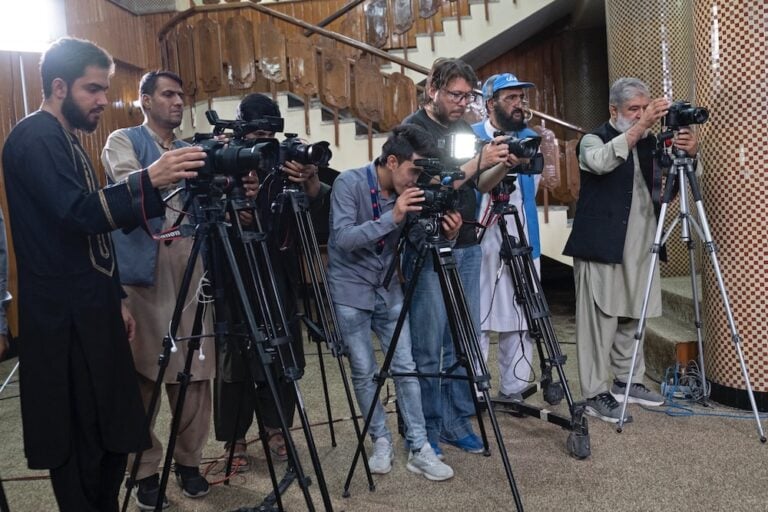The Afghanistan Journalists Center documented a total of 75 incidents violating media freedom from March to November this year.
This statement was originally published on afjc.media on 18 November 2023.
The Afghanistan Journalists Center (AFJC) today published a report that details the hurdles confronting media organizations and journalists in Afghanistan within the initial six months of the ongoing 1402 solar year. The report emphasizes the growing constraints on independent media, the evolving media landscape, and a troubling surge in arrests of journalists.
Covering the period from March 21 to November 17, 2023, the report uncovers widespread disruptions to media operations across the provinces and in the capital city of Kabul. Stringent restrictions on information access have hampered media organizations’ ability to produce independent reports and engage in critical journalism. The Taliban’s tightening grip on media content has forced outlets to focus solely on approved coverage of humanitarian events, aid efforts, and educational programs.
Additionally, the report highlights the continued clampdown on journalists expressing critical opinions on the current situation in the country, including online platforms.
Despite the apparent endorsement of media and access to information laws by the Taliban, the report finds that their implementation remains inconsistent with the directives issued during the past two years. The AFJC’s recent research reveals that at least 13 directives concerning the media have been issued during this period, exceeding the limited adjustments proposed by the Taliban in the country’s media laws. Journalists and media organizations continue to face repercussions based on these directives.
The Afghanistan Journalists Center documented a total of 75 incidents violating media freedom in the first six months of ongoing solar year. These incidents involved 33 arrests and 42 instances of threats against journalists and media personnel. The majority of arrests were carried out by the intelligence department, with various other agencies, notably intelligence, information, and culture, also implicated in threatening journalists and media professionals.
AFJC, underscoring the detrimental impact of restrictions on the free press and journalists’ rights, calls for the Taliban to review their media policy. AFJC also urges the Taliban to revise their media policy, refrain from imposing unjustified and extra-legal demands on journalists and media, and provide an environment to work without fear and free from self-censorship.



